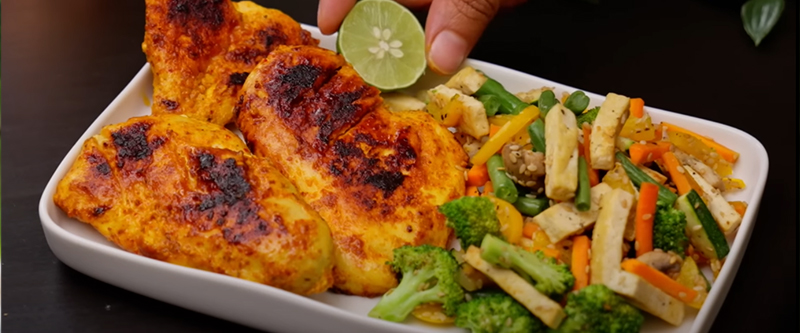For optimal recovery, it is crucial to eat shortly after exercise. Ideally, consume a meal within 30 minutes to an hour post-workout. Your body is able to absorb nutrients during this window, facilitating the growth and repair process essential for effective training.
After cycling, it’s beneficial to eat a combination of lean protein like eggs or chicken, complex carbs such as whole-grain pasta or rice, and healthy fats like avocado.
Including antioxidants from berries and opting for recovery drinks like chocolate milk or protein smoothies can help replenish energy and support muscle recovery. These choices can aid in refueling your body effectively after a cycling session.
In this blog, We will explore The 24 Essential Foods You Should Eat After Cycling and A timeline of what to eat for post cycling recovery.
What To Eat After Cycling: 24 Essaintial Foods
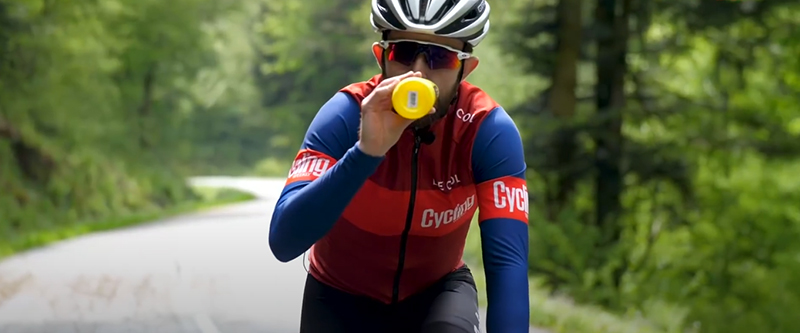
A proper post-cycling nutrition program can make a significant difference in boosting performance and well-being. Understanding the significance of replenishing lost fluids and electrolytes can make a significant impact on your post-ride recovery. Let’s explore the essential aspects of rehydration and the best hydration drinks for cyclists.
Hydration After Cycling: Replenishing Fluids
Rehydration is a fundamental aspect of post-cycling recovery that often gets overlooked. When you cycle, especially over long distances or in hot weather, your body loses substantial amounts of fluid through sweat. This loss can lead to dehydration, which negatively impacts your performance and recovery. Proper rehydration helps restore fluid balance, supports muscle recovery, and ensures that your body functions optimally.
Key Reasons Why Rehydration Is Crucial After Cycling:
- Fluid Balance: Replenishes lost fluids and helps maintain blood volume, which is essential for cardiovascular efficiency.
- Temperature Regulation: Aids in normalizing body temperature, preventing overheating during subsequent rides.
- Muscle Recovery: Supports the transportation of nutrients to muscles, facilitating quicker recovery and reducing soreness.
Best Hydration Drinks and Electrolytes for Cyclists
Choosing the right hydration drinks and electrolytes is crucial to how effectively you recover after a ride. Not all beverages are created equal for replenish fluids and electrolytes. Here are some recommended hydration drinks:
- Water: The most basic yet essential fluid for rehydration. It’s crucial to drink water immediately after cycling to kick
start the hydration process. - Sports Drinks: Formulated to replace fluids and electrolytes lost during exercise. Look for options with a balance of potassium, sodium, and carbohydrates.
- Coconut Water: Coconut water sports drinks, rich in potassium and other electrolytes. It’s also lower in sugar and calories.
- Electrolyte Tablets: Dissolved in water, these provide a convenient way to ensure you’re getting the electrolytes without added sugars.
- Protein Shakes: Combining hydration with muscle repair, protein shakes can be especially beneficial for longer rides where muscle breakdown is significant.
Essential Electrolytes for Cyclists:
- Sodium: Helps keep water and prevent hyponatremia (low sodium levels), which can occur with excessive sweat loss.
- Potassium: Crucial for muscle function and preventing cramps. Potassium-rich drinks help maintain electrolyte balance.
- Magnesium: Aids in muscle relaxation and reducing cramps. Magnesium deficiency is common among athletes, making supplementation important.
- Calcium: Important for muscle contractions and nerve function. Ensuring adequate calcium intake can help prevent muscle spasms.
Using these hydration strategies after cycling boosts recovery and readies you for the next ride. Staying well-hydrated optimizes performance and health, beyond just quenching your thirst.
Carbohydrates After Cycling: Refuel Your Energy Stores
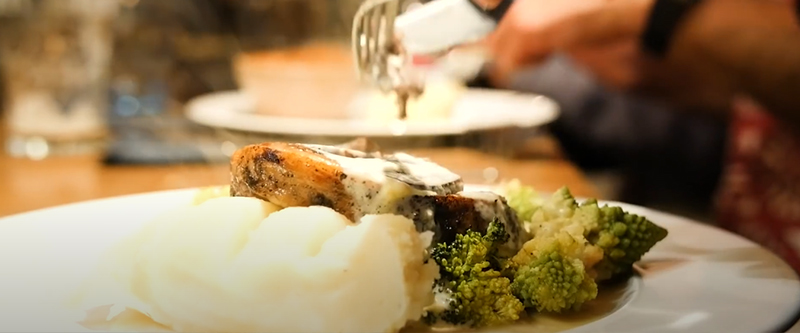
While cycling, the depletion of glycogen stores, which are stored carbohydrates in muscles and the liver, can cause fatigue and reduced performance.
Why Carbohydrates Are Essential After Cycling
Carbohydrates are crucial for post-cycling recovery, serving as the main energy source for your body. Swiftly replenishing these glycogen stores after a ride is vital for various reasons:
- Energy Restoration: Carbohydrates are the quickest source of energy. Consuming them post-cycling helps restore energy levels and prepare your body for future rides.
- Muscle Recovery: Adequate carbohydrate intake aids in muscle repair and growth by providing the energy for these processes.z
- Reduced Fatigue: Replenishing glycogen stores reduces overall fatigue, both mentally and physically, ensuring you’re ready for your next activity.
- Enhanced Performance: Maintaining optimal glycogen levels ensures better performance in subsequent training sessions or races.
- Prevention of Muscle Breakdown: Without adequate carbohydrates, your muscles might be broken down for energy, which hinders overall recovery and muscle maintenance.
Top Carbohydrate-Rich Foods for Post-Cycling Nutrition
Choosing the right carbohydrate sources can significantly impact the efficiency of your recovery. Here are some excellent options to consider:
Whole Grains
- Quinoa: A high-protein grain that provides all essential amino acids along with being rich in carbohydrates.
- Brown Rice: Offers sustained energy release and is easy to digest.
- Oats: Ideal for both quick and slow-release energy, making it versatile for various meal types.
Fruits
- Bananas: Rich in natural sugars and potassium, they offer a quick energy boost and help replenish electrolytes.
- Berries (Blueberries, Strawberries): High in antioxidants and carbohydrates, they help reduce inflammation and aiding recovery.
- Apples and Oranges: Provide both hydration and a good source of vitamins alongside carbohydrates.
Starchy Vegetables
- Sweet Potatoes: Packed with complex carbohydrates and vitamins, they offer sustained energy release.
- Butternut Squash: Another excellent source of complex carbs, also rich in vitamins A and C.
- Pumpkin: High in fiber and carbohydrates, enhancing glycogen synthesis and digestive health.
Legumes
- Lentils: Offer a combination of protein and complex carbohydrates, aiding in muscle repair and energy replenishment.
- Chickpeas: Versatile and nutrient-dense chickpeas provide sustained energy and essential minerals.
- Black Beans: High in fiber and protein, promoting steady energy levels.
Dairy and Alternatives
- Greek Yogurt: Provides both carbohydrates and protein, ideal for muscle recovery and energy replenishment.
- Milk: Contains lactose, a sugar that helps replenish glycogen stores quickly.
- Plant-Based Milks (Soy, Almond): Some varieties are fortified with extra nutrients and provide a balance of carbohydrates and protein.
Snacks and Bars
- Energy Bars: Designed to provide a quick carbohydrate boost, often fortified with additional vitamins and minerals.
- Rice Cakes with Nut Butter: Combines complex carbohydrates and healthy fats, offering a balanced snack option.
- Trail Mix: These snacks of dried fruits and nuts can provide a quick source of carbs and other essential nutrients.
Adding carb-rich foods to your post-cycling meals replenishes glycogen stores, aiding recovery and preparing you for the next ride.
Protein After Cycling: Repairing and Building Muscle
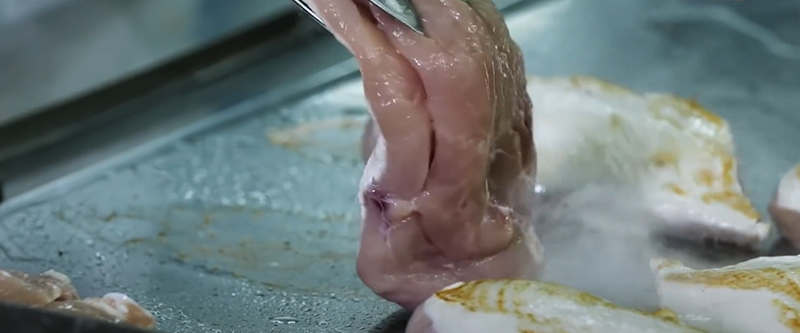
Protein is crucial for muscle recovery post-cycling. After demanding rides, muscles experience tiny tears. By consuming protein after the ride, it helps repair these tears, promoting muscle recovery and growth.
The Necessity of Protein for Muscle Recovery
Proteins are fundamental to muscle recovery after cycling. During cycling, especially intense or prolonged rides, your muscles experience micro-tears. Consuming protein post-ride helps repair these micro-tears, allowing muscles to recover and grow. Here’s why protein is essential:
- Muscle Repair: Proteins provide the amino acids necessary for repairing muscle fibers damaged during exercise.
- Muscle Growth: Adequate protein intake contributes to muscle hypertrophy, enhancing overall strength and endurance.
- Reduced Muscle Soreness: By aiding in effective repair, protein can help reduce the delayed onset of muscle soreness (DOMS).
- Supports Immune Function: Exercise can temporarily suppress the immune system; protein helps maintain a healthy immune response.
- Sustained Energy: Protein combined with carbohydrates ensures a more sustained energy release, preventing energy crashes.
Best Protein Sources to Consume After Cycling
Selecting the right protein sources is crucial for effective recovery. Here are some top choices to consider:
Animal-Based Proteins
- Chicken Breast: High-quality protein, it’s a staple for muscle repair.
- Turkey: Another lean protein option, offering a good balance of nutrients.
- Eggs: Highly versatile and packed with all essential amino acids.
- Fish (Salmon, Tuna): High in protein, which help reduce inflammation.
- Greek Yogurt: Provides both casein and whey protein, ideal for continuous protein release.
- Lean Beef: Rich in iron and creatine, supporting energy levels and muscle function.
Plant-Based Proteins
- Quinoa: Completely amino acid-rich.
- Lentils: High in protein and fiber, promoting both muscle repair and digestive health.
- Chickpeas: Versatile and nutrient-dense, great for salads, soups, or as a snack.
- Black Beans: Providing a robust source of protein and fiber, aiding in sustained energy.
- Tofu and Tempeh: Soy-based proteins that are excellent meat substitutes, rich in essential amino acids.
Dairy and Alternatives
- Cottage Cheese: High in casein, making it a great choice for sustained protein release over several hours.
- Soy Milk: Fortified varieties offer a good protein alternative for those avoiding dairy.
Supplements
- Whey Protein Powder: Fast-digesting and effective for quick muscle recovery post-ride.
- Casein Protein Powder: Slow-digesting, providing a prolonged release of amino acids.
- Plant-Based Protein Powders (Pea, Hemp, Rice): Ideal for vegetarians and vegans, offering a complete protein profile.
Combining Protein with Carbohydrates
For optimal recovery, combining protein with carbohydrates is recommended. This combination not only aids muscle repair but also replenishes glycogen stores. Here are a few combination ideas:
- Chicken and Quinoa Salad: Contains both protein and complex carbohydrates.
- Greek Yogurt with Berries: Offers protein with antioxidant-rich carbs.
- Protein Shake with Banana: A quick and easy option for immediate post-ride recovery.
- Tofu Stir-Fry with Brown Rice: Combines plant-based protein with whole grains for sustained energy.
Fats After Cycling: Supporting Overall Recovery
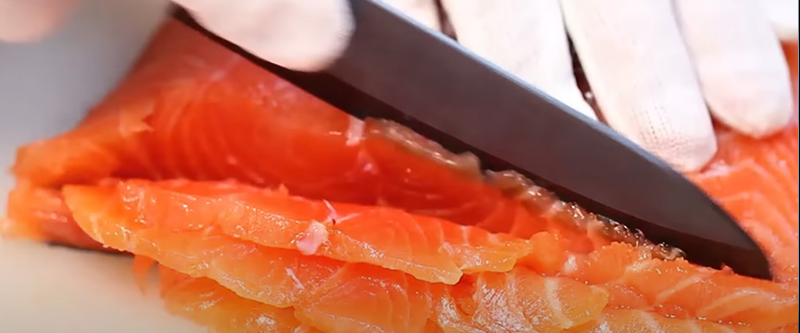
Delve into the significance of incorporating fat into your post-cycling diet to support optimal recovery and performance. By understanding the role of essential fatty acids and their impact on energy replenishment and muscle repair, cyclists can enhance their overall endurance and well-being.
Benefits of Healthy Fats in Post-Cycling Nutrition
Healthy fats are a vital component of post-cycling nutrition that contribute significantly to overall recovery. Though often overlooked in favor of carbohydrates and proteins, fats play several crucial roles:
- Energy Source: Healthy fats provide a long-lasting energy source, which is especially beneficial for endurance athletes.
- Anti-Inflammatory Properties: found in certain Omega-3 fatty acids fats that help to reduce inflammation and muscle soreness post-exercise.
- Nutrient Absorption: Fats aid in absorbing fat-soluble vitamins (A, K, D, and E) which are essential for overall health and recovery.
- Hormone Regulation: Dietary fats are important for hormone production and regulation, which can affect muscle recovery and growth.
- Cellular Health: Fats are integral components of cell membranes and play a role in repairing cellular damage caused by intense exercise.
Recommended Sources of Fats for Cyclists
Choosing the right sources of fats can enhance your recovery and support overall health. Here are some top recommendations:
- Fatty Fish (Salmon, Mackerel, Sardines): High in EPA and DHA, which are potent anti-inflammatory omega-3 fatty acids.
- Chia Seeds: A plant-based source of omega-3s, adding them to smoothies or yogurt can boost your fat intake.
- Flaxseeds: Another excellent plant-based source, ground flaxseeds add omega-3s to a variety of dishes.
- Walnuts: Omega-3-rich, these nuts make for a great post-ride snack.
Monounsaturated Fats
- Avocados: Packed with monounsaturated fats, fiber, and several essential vitamins and minerals.
- Olives and Olive Oil: Rich in heart-healthy monounsaturated fats, making it ideal for cooking or salad dressings.
- Nuts (Almonds, Cashews, Pecans): Provide a good balance of protein, fiber, and healthy fats.
Polyunsaturated Fats
- Sunflower Seeds: High in polyunsaturated fats and Vitamin E, an antioxidant that aids in muscle recovery.
- Pumpkin Seeds: Another excellent source of polyunsaturated fats and other nutrients like magnesium.
- Soybeans: Contain both polyunsaturated fats and protein, making them a versatile post-cycling food.
Saturated Fats (In Moderation)
- Coconut Oil: Contains medium-chain triglycerides, which are easily metabolized for quick energy.
- Grass-Fed Butter: Offers a balance of saturated fats, omega-3s, and vitamins, but should be consumed in moderation.
Integrating these healthy fats into your post-cycling nutrition will not only support your recovery but also ensure you’re getting a well-rounded nutrient profile.
How To Eat After Cycling: A Timeline
Cycling performance can be enhanced by optimizing recovery after cycling. To achieve this, adhere to a structured timeline for optimal post-cycling nutrition. This approach is crucial for supporting muscle repair, glycogen replenishment, and overall recovery.
Optimal Timing for Consuming Nutrients Post-Cycling
The timing of your nutritional intake after cycling is crucial for maximizing recovery and preparing your body for subsequent rides. Recovery can be significantly enhanced by consuming the right nutrients within specific time frames.
The Critical “Golden Hour”
- First 30 Minutes: This period, often referred to as the “anabolic window,” is when your muscles are most receptive to nutrient uptake. Combining carbohydrates with protein during this time helps kickstart the recovery process.
- Carbohydrates: Quickly replenish depleted glycogen stores.
- Protein: Provides amino acids to muscle repair and synthesis.
- Next 30-60 Minutes: Continue to hydrate and consume balanced meals or snacks that include proteins, carbs, and healthy fats to sustain recovery efforts.
Extended Recovery Period (1-4 Hours)
- Sustained Nutrient Intake: It’s important to continue consuming nutritious meals and snacks throughout the day to maintain energy levels and promote ongoing recovery.
- Complex Carbohydrates: Provide sustained energy release.
- Proteins: Ensure continuous muscle repair.
- Healthy Fats: Support overall health and slow energy release.
Hydration Timing
- Immediate Rehydration: Drink water or an electrolyte beverage immediately after cycling to replace lost fluids.
- Continuous Hydration: Keep hydrating throughout the day to ensure complete fluid balance restoration.
Sample Meal Schedule for Effective Recovery

Creating a meal schedule that aligns with these optimal timing guidelines will help ensure you get the most out of your post-cycling nutrition.
Immediately Post-Cycling (0-30 minutes)
Recovery Shake: A blend of whey protein powder, a banana, and almond milk. This quick-absorbing shake provides essential proteins and carbohydrates.
Electrolyte Drink: A sports drink or coconut water to replenish lost electrolytes and fluids.
Early Recovery Meal (30-60 minutes)
Grilled Chicken and Quinoa Salad. Ingredients are:
- Grilled chicken breast (protein source)
- Quinoa (complex carbohydrates)
- Mixed greens (vitamins and minerals)
- Avocado (healthy fats)
- Olive oil dressing (monounsaturated fats)
Benefits: Provides a balanced mix of protein, carbs, and healthy fats, along with essential micronutrients.
Mid-Recovery Snack (1-2 hours post-cycling)
Greek Yogurt with Berries and Chia Seeds. Ingredients are:
- Greek yogurt (protein and probiotics)
- Mixed berries (antioxidants and vitamins)
- Chia seeds (omega-3 fatty acids and fiber)
Benefits: Combines protein with antioxidants and healthy fats, supporting muscle repair and reducing inflammation.
Main Recovery Meal (2-3 hours post-cycling)
Salmon and Sweet Potato. Ingredients are:
- Grilled salmon (high-quality protein and omega-3 fatty acids)
- Baked sweet potato (complex carbohydrates and vitamins)
- Steamed broccoli (fiber and micronutrients)
Benefits: Offers a comprehensive nutrient profile with proteins, carbs, and healthy fats, enhancing overall recovery.
Evening Snack (3-4 hours post-cycling)
Nut Butter and Apple Slices. Ingredients are:
- Natural almond or peanut butter (healthy fats and protein)
- Apple slices (simple carbohydrates and fiber)
Benefits: Provides a satisfying blend of protein, fats, and carbs to keep energy levels stable and continue the recovery process.
Conclusion
Champions, behold your roadmap to nutritional success post-cycling! Never underestimate the impact of your post-ride fuel. The significance of hydration, carbohydrates, proteins, and fats post-cycling is pivotal for body recovery, faster recuperation, and fueling your upcoming rides.
Keep in mind, each body has unique rhythms and requirements, so personalize these nutritional tactics to suit your needs
The aim isn’t just momentary revitalization but a consistent approach to ensure you’re geared up for every ride. Give your post-cycling meals the recognition they merit and relish the nourishing journey on wheels.
FAQs
What Do You Should Avoid Eating While Cycling?
Avoid eating high-fat foods, high-protein foods, and high-fiber foods while cycling. These types of foods can slow digestion, make you feel too full, and potentially lead to discomfort during exercise. Stick to easily digestible, balanced meals before your ride for optimal performance.
Do Gels Help Cycling?
Energy gels can serve as a valuable source of rapidly absorbed energy during extended rides or races exceeding 2-3 hours. They also prove advantageous in high-intensity cycling sessions such as hill repeats or interval training, where the body rapidly depletes energy reserves.

